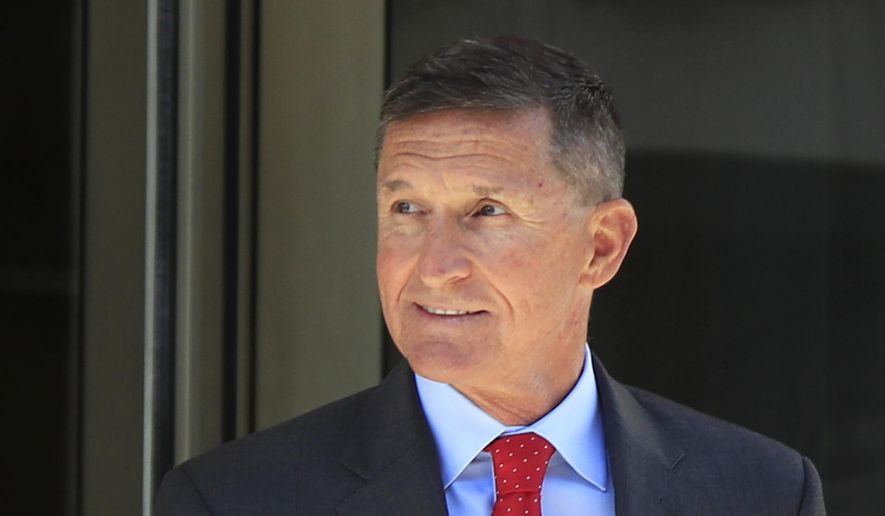A federal judge left President Trump’s first national security adviser, Michael Flynn, in legal limbo Tuesday as the clock ticks down to a possible Biden administration that would undoubtedly continue the prosecution.
U.S. District Judge Emmet G. Sullivan, who is overseeing the criminal case against Flynn, again did not immediately grant the Justice Department’s request to abandon the prosecution. Instead, Judge Sullivan said he would take the case under advisement.
“That deserves repeating,” Judge Sullivan said as he again emphasized that he won’t be a “rubber stamp.”
The hearing Tuesday officially restarted the Flynn case after a brief detour to the U.S. Court of Appeals this summer. However, the hearing Tuesday was plagued with technical problems and long-winded dissertations from the bench that dragged out the proceeding.
Flynn’s lawyer, Sidney Powell, announced that she will formally ask Judge Sullivan to remove himself from the case, accusing him of “abject bias” against Flynn.
Ms. Powell also alleged the judge selected the latest date possible for the hearing in an effort to run out the clock. He denied the claim, saying he had to proceed “very cautiously” because of the appellate court’s ruling.
During the hearing, Ms. Powell disclosed that she had discussed the case with President Trump and White House lawyers.
“I provided the White House with an update on the status of the litigation,” she said. “And I asked the president not to issue a pardon.”
Ms. Powell said the conversation happened in the last few weeks, and it was the only time she discussed the case with the president.
Judge Sullivan repeatedly questioned Justice Department lawyers on whether Mr. Trump’s tweets led to political intervention by Attorney General William P. Barr in the Flynn case.
Kenneth C. Kohl, a career prosecutor, insisted abandoning the Flynn case was the “right call for the right reasons.”
“Allegations against our office that we somehow acted with a corrupt political motive are just not true,” he said. “It didn’t happen here.”
But John Gleeson, a retired federal judge appointed by Judge Sullivan to argue against the Justice Department’s request, insisted the president’s comments about Flynn cannot be ignored.
“This is the most bizarre process I’ve witnessed,” Mr. Gleeson told the court.
Flynn twice pleaded guilty during two separate hearings to charges that he lied to FBI agents in January 2017 about his conversations with the Russian ambassador to the United States just before Mr. Trump took office.
Last year, Flynn fired his legal counsel, hired conservative firebrand Sidney Powell, recanted his guilty plea and professed his innocence.
The Justice Department in May touched off a political firestorm by asking the court to abandon the case, it spent three years building. Department lawyers said in a court filing, that Flynn’s statements to the FBI were not material to any investigation and there was no reason for Flynn to be interviewed.
Department lawyers, in the filing, cited unsealed court filings that raised questions about whether the FBI had set a perjury trap for Flynn.
Judge Sullivan refused to immediately grant the Justice Department’s request to drop the case, and instead, appointed Mr. Gleeson to argue against dismissing it.
The stand-off ultimately led to a showdown before the U.S. Court of Appeals for the D.C. Circuit.
Initially, a three-judge panel on the appellate court ruled that Judge Sullivan had to dismiss the case. But Judge Sullivan then asked the entire lineup of judges on the same court to rehear the case.
In an 8-2 ruling last month, the appellate court said it was premature to rule because Judge Sullivan hadn’t decided against granting the Justice Department’s request.
The court also held that Flynn did not prove bias, denying his request that a different judge handles the case.
• Jeff Mordock can be reached at jmordock@washingtontimes.com.




Please read our comment policy before commenting.